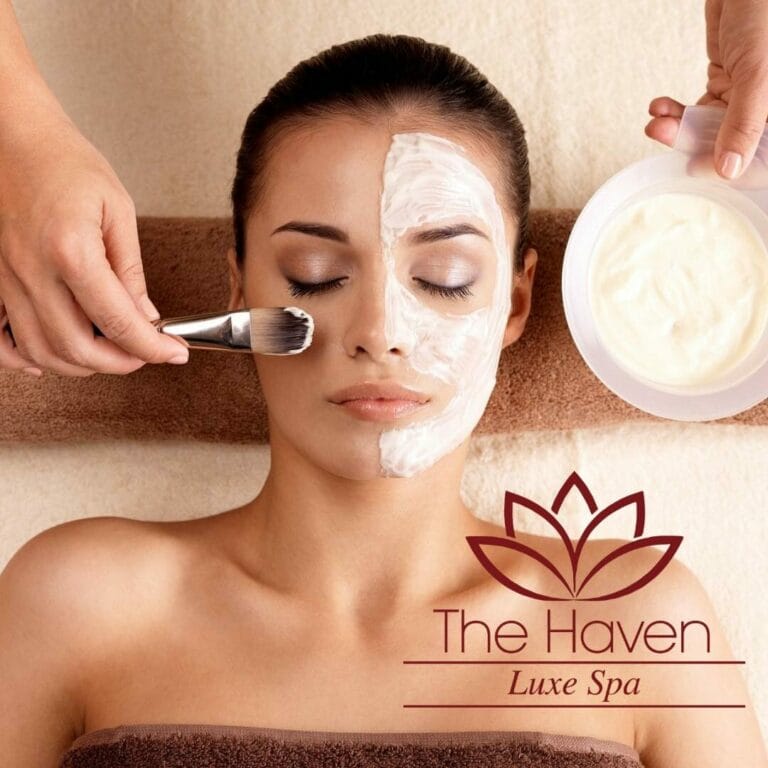The Future of Anti-Aging: Breakthrough Technologies and Lifestyle Trends for 2023 and Beyond

In a world where the global population is rapidly ageing, the pursuit of youth and vitality has become a top priority for many. According to the United Nations, the number of people aged 60 and above is expected to reach 2.1 billion by 2050, a staggering increase from 962 million in 2017. This demographic shift has led to a surge of interest in anti-aging research, as scientists strive to unlock the secrets of longevity and develop groundbreaking treatments that could redefine the human aging process.
Recent scientific reports and studies have provided fascinating insights into the potential of anti-aging interventions. A 2018 study published in the journal Nature revealed that clearing senescent cells, which accumulate with age and contribute to the aging process, could extend the healthy lifespan of mice by up to 36%. Another breakthrough study in 2020 demonstrated that a combination of three drugs could reverse the biological age of human cells by two years, opening the door to the possibility of age reversal in humans.
As we dive into the realm of anti-ageing, we stand at the cusp of a new era in healthcare and wellness. The potential benefits of unlocking the secrets to longevity are vast, from reducing the burden of age-related diseases to improving the overall quality of life for millions of people around the world.
In this article, we will explore the latest advancements in anti-ageing research and the emerging technologies and trends that hold the key to revolutionizing the way we age. Get ready to embark on a journey through the fascinating world of anti-aging and witness how the future of this field is being shaped by innovation, scientific discovery, and a relentless pursuit of eternal youth.

Table of Contents
Lifestyle choices: anti-ageing from latest technologies to the future of gene editing
Aging is a natural process that every living organism undergoes, but it comes with a set of implications, such as a decline in physical and mental capabilities. In recent years, the quest for longevity has become more prominent, with people searching for ways to maintain their youth and vitality.
What is the future of anti-ageing and the emerging technologies and trends that are shaping longevity?
One promising approach to anti-aging is telomere extension. Telomeres are the protective caps at the end of chromosomes that shorten as cells divide. When telomeres become too short, cells lose their ability to divide, leading to aging and death. Scientists are researching methods to extend telomeres, potentially delaying the aging process.
Senolytics are a class of drugs that selectively target and eliminate senescent cells. These cells have stopped dividing and contribute to age-related diseases and inflammation. By removing senescent cells, senolytics could potentially slow down the aging process and improve overall health.
Gene editing technologies, such as CRISPR, offer the potential to edit genes associated with ageing directly. Scientists are exploring the possibility of using CRISPR to target and modify genes responsible for age-related diseases, leading to a longer and healthier life.

The future of gene editing: unlocking the secrets of anti-ageing
The initial genome editing technologies emerged in the late 1900. In 2009, the introduction of a ground-breaking genome editing tool called CRISPR revolutionized the field. CRISPR offers a more straightforward, faster, cost-effective, and precise approach compared to its predecessors. Consequently, a majority of researchers working on genome editing have now adopted CRISPR as their tool of choice.
Gene editing technologies, such as CRISPR-Cas9, have been making headlines in recent years for their ability to precisely manipulate genes, offering unprecedented potential in various fields, including anti-aging research. As we look towards the future, gene editing could play a crucial role in unlocking the secrets of longevity and revolutionizing the way we age.
While CRISPR-Cas9 has been the most well-known gene editing tool, scientists are continually developing and refining other gene editing techniques. For instance, newer technologies like base editing and prime editing offer even more precision and fewer off-target effects. These advances will likely accelerate the pace of anti-aging research and open up new possibilities for targeted interventions to slow down or even reverse the aging process.
One of the critical areas where gene editing could make a significant impact is identifying and understanding the role of longevity genes, which are genes that influence lifespan and healthspan. By using gene editing to manipulate these genes in animal models, researchers can study the effects on aging and identify potential therapeutic targets.
For example, scientists have discovered genes like FOXO3 and SIRT1 that are linked to increased lifespan and health in various organisms, including humans. As more longevity genes are identified, we could potentially develop gene editing-based therapies that target these genes to promote healthy aging.
In the future, gene editing could pave the way for personalized anti-aging therapies. By analysing an individual’s genetic makeup, healthcare professionals can pinpoint specific genetic factors that contribute to their aging process. With this information, gene editing techniques could be employed to modify these genes, resulting in customized interventions tailored to each person’s unique genetic profile.
As gene editing technologies advance and their potential applications in anti-aging research grow, ethical and regulatory considerations will need to be addressed. Questions surrounding the safety, long-term effects, and potential misuse of gene editing for anti-aging purposes must be carefully examined. Ensuring that regulations and guidelines are in place to protect both individuals and society at large will be essential in moving forward with this promising area of research.
The future of gene editing in anti-aging research holds great promise. As we continue to refine these technologies and increase our understanding of the genetic factors that influence aging, we may soon be able to develop targeted therapies that can slow down or even reverse the aging process. While there are still many challenges to overcome, gene editing’s potential to transform the field of anti-aging research is undeniable, and the possibilities are both exciting and inspiring.

The promising horizon of anti-ageing research: advanced skincare
In the future, personalized skincare products will be tailored to an individual’s unique skin type and needs. This will allow for more effective treatments, leading to better results and potentially slowing the visible signs of aging.
3D bioprinting is an emerging technology that could revolutionize skincare. By using a person’s own cells, scientists can create custom, living tissue that can be applied to the skin to
replace damaged areas or enhance the appearance. This could potentially offer a more natural and effective alternative to traditional anti-aging treatments.
Smart skincare devices, such as wearable sensors and AI-powered gadgets, will become increasingly popular in the future. These devices can monitor various skin parameters, such as hydration levels, and provide personalized recommendations for maintaining healthy and youthful skin.

Nutraceuticals and Supplements
NAD+ (Nicotinamide Adenine Dinucleotide) is a molecule that plays a crucial role in cellular metabolism and energy production. As we age, our NAD+ levels decline, which can contribute to aging and age-related diseases. NAD+ boosters, such as NMN and NR, are supplements that aim to restore NAD+ levels and improve overall health and longevity.
Antioxidants are compounds that protect the body from the damaging effects of free radicals, which contribute to aging and disease. Some popular antioxidant supplements include resveratrol, quercetin, and curcumin, which have been shown to have potential anti-aging benefits.
Hormone therapy aims to restore hormone levels that naturally decline as we age, such as testosterone, estrogen, and human growth hormone. By maintaining optimal hormone levels, hormone therapy could potentially improve health, vitality, and slow down the aging process.
Future lifestyle changes- from exercise to fitness technologies
In the future, precision nutrition will enable individuals to tailor their diets to their unique genetic makeup and metabolic needs. This personalized approach could optimize health and potentially slow down the aging process.
New exercise and fitness technologies, such as AI-powered workout programs and virtual reality exercise environments, will make it easier for individuals to maintain an active and healthy lifestyle. Regular exercise is known to have numerous health benefits and can help slow down the aging process.
Mental health and wellness are increasingly recognized as essential components of overall health and longevity. In the future, we can expect new treatments and technologies that focus on improving mental health, reducing stress, and promoting a positive mindset, all of which can contribute to a longer and healthier life.
Ethical considerations & the moral implications of anti-ageing
As anti-ageing technologies continue to advance, we must consider the moral implications of extending human life. Questions surrounding overpopulation, resource allocation, and the potential loss of cultural and generational diversity will need to be addressed.
Access to anti-aging treatments
Another ethical concern is the potential disparity in access to anti-ageing treatments. It’s crucial to ensure that these technologies are available to all individuals, regardless of socioeconomic status, to prevent widening the gap between the wealthy and the less fortunate.
The future of anti-aging is full of exciting possibilities, with emerging technologies and trends poised to revolutionize the way we approach health, wellness, and longevity. By understanding these advancements and making informed choices, we can work towards a future where aging gracefully becomes a reality for everyone.
If you want to share your story and inspire our readers with your wisdom and expertise, know that every story is paving the way for a brighter, happier future.


FAQs
- What is the primary goal of anti-aging research? The primary goal of anti-aging research is to understand the underlying mechanisms of aging and develop interventions that can delay or reverse the aging process, leading to a longer and healthier life.
- What are some potential benefits of anti-aging technologies? Anti-aging technologies could potentially reduce the risk of age-related diseases, improve overall health and vitality, and extend human lifespan.
- Are there any risks associated with anti-aging treatments? As with any medical treatment,
- there can be potential risks associated with anti-aging treatments. It’s important to thoroughly research and understand the possible side effects and long-term consequences of any anti-aging intervention before deciding to pursue it.
- Will anti-aging technologies be accessible to everyone? Ensuring equal access to anti-aging technologies is a significant ethical concern. Policymakers and researchers must work together to develop guidelines and strategies to make these treatments available to everyone, regardless of their socioeconomic status.
- How can I stay updated on the latest anti-aging research and technologies? To stay informed about the latest advancements in anti-aging research, you can follow reputable scientific journals, attend conferences, and keep an eye on the news from leading research institutions and biotechnology companies.






